'Heart of the community': Daylu Dena Council celebrates new building in Lower Post, B.C.
The Daylu Dena Council officially opened its new cultural and administration building in Lower Post, B.C. on Friday — an event marked largely by celebration, and a sense of reclamation in the wake of a horrific past.
Dene Kǫ^, meaning "People's House," sits by the Liard River, a bright wooden two-storey structure with 36 offices, meeting spaces, a commercial kitchen and a gymnasium.
It's also just steps from the site of the Daylu Dena Council's last office — the former Lower Post residential school building, which was finally torn down in 2021.
"It's a day of mixed emotions," Daylu Dena Council deputy chief Harlan Schilling said in an interview.
"It's been my whole life fighting to get rid of a building and so we were able to do that three years ago, and now, to be here today at the grand opening of our new building… It's pretty emotional."
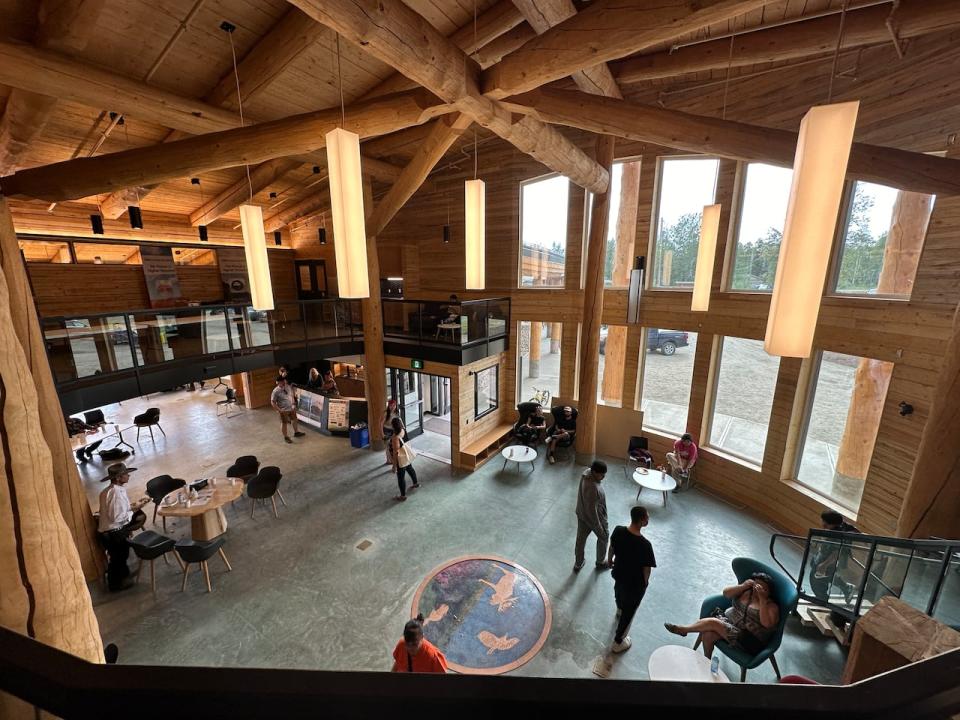
Indigenous children from across the Yukon and northern British Columbia attended the Lower Post residential school, which was operated by the Catholic Church and later, the Canadian government, beginning in 1951. While the school ceased operations in 1975, the Daylu Dena Council, due to a lack of funding and available space, then used the building as its office until it flooded in 2020.
A ceremonial demolition and burning of pieces of the building happened a year later, along with a groundbreaking ceremony for Dene Kǫ^. The building was custom-designed for the community and has a literal local touch — the giant wooden posts adorning the inside and outside were made from trees harvested 20 kilometres away that were then hand-stripped by community members. The beams crossing the ceiling of the lobby were designed to look like the strings across the back of a hand drum, and children in Lower Post picked the building's accent colours.
Schilling said he hoped Lower Post would serve as a "beacon of hope" to other communities, and that he was excited for the future — for the past three years the Daylu Dena Council had to run its government out of ATCO trailers, and there was no proper space to host events or for people to gather.
Dene Kǫ^ changes that.
"It's the heart of the community," Schilling said.
'It's a reclaiming of our land, reclaiming of our spirit'
Dozens of people from across the Yukon and northern British Columbia travelled to Lower Post for the grand opening on Friday. Among them was Kaska elder and Lower Post residential school survivor Rose Caesar, who said she was still on her healing journey but that attending was helping her let go of some of her trauma.
"I embrace who I am today," she said in an interview. "I'm proud to be a First Nation woman and a strong Kaska woman, and I'm just proud to be part [of] and a member of Kaska Nation."
"I just want people to know that they have to honour themselves, because we're special," she added. "We've got a lot of strength, we got a lot of resilience, and no government's going to change who we are."
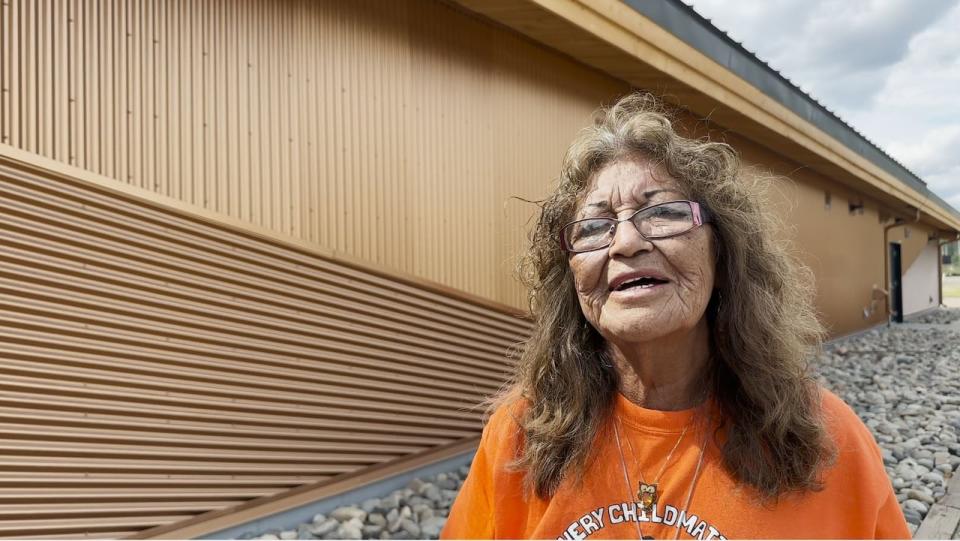
Along with being there for personal reasons, Caesar was one of several members of the Liard Aboriginal Women's Society (LAWS) who'd travelled from Watson Lake to Lower Post for the weekend to offer support for anyone in need.
Another LAWS member, Linda Macdonald, also had personal reasons for attending — her mother was born in Lower Post, and while Macdonald didn't attend the residential school thanks to her father's employment at the Watson Lake airport, many of her friends and relatives did.
Macdonald said it was good to hear "the hope and the happiness and joy in people's voices," and to celebrate the "beautiful" and carefully-thought-out new building.
"Even though it is very close to where the former residential school was, I think maybe that's even better in some ways," she said.
"It's a reclaiming — it's a reclaiming of our land, reclaiming of our spirit, reclaiming the joy and happiness and the strength that we always had as a people prior to the school being here."

A number of politicians were also in Lower Post Friday, including Watson Lake Mayor Chris Irvin, Skeena-Bulkley Valley MP Taylor Bachrach, Liard First Nation Chief Stephen Charlie and federal immigration, refugees and citizenship minister Marc Miller.
Miller was previously the minister of Indigenous Services and then Crown-Indigenous Relations, and was in Lower Post in 2021 for the ceremonial tear-down of the residential school. Speaking at the grand opening, he said that Schilling gave him a piece of the school at the time and told him to burn it — something he never did.
However, Miller said he'd brought the piece back to Lower Post with him to finally be burned.
"I felt that this was … Some unfinished business that needed to be done today, so this is personal to me," he said.
Another survivor, Tahltan elder Richard "Rocky" Jackson," travelled from Telegraph Creek, B.C. to give Friday's opening prayer. Jackson had previously returned to Lower Post in 2012 for a gathering to commemorate children who'd gone to the school and said seeing the new building — along with the celebration and joy surrounding it — offered him another level of closure.
"For me, it's a different atmosphere eh?" he said.
"At first, it took awhile to come back, to feel good about being here because of what I experienced here, on the grounds here. So now, today is a celebration, an extended celebration from 2012 ... It's all part of our healing that's taking place."
The grand opening ceremony was only a small portion of the weekend, which featured live music, a jigging contest, beading workshops, a small market and, the most popular of all the events, a handgames tournament, the drumming from which could be heard throughout the community.
"Hearing the drums, the handgames is going on right now — there's so many kids involved, playing, chanting and screaming, you know, it's a little bit of their identity, of who they are as Indigenous kids and children and men and women over there," Schilling said.
"I hope to hear these drums going a lot more."
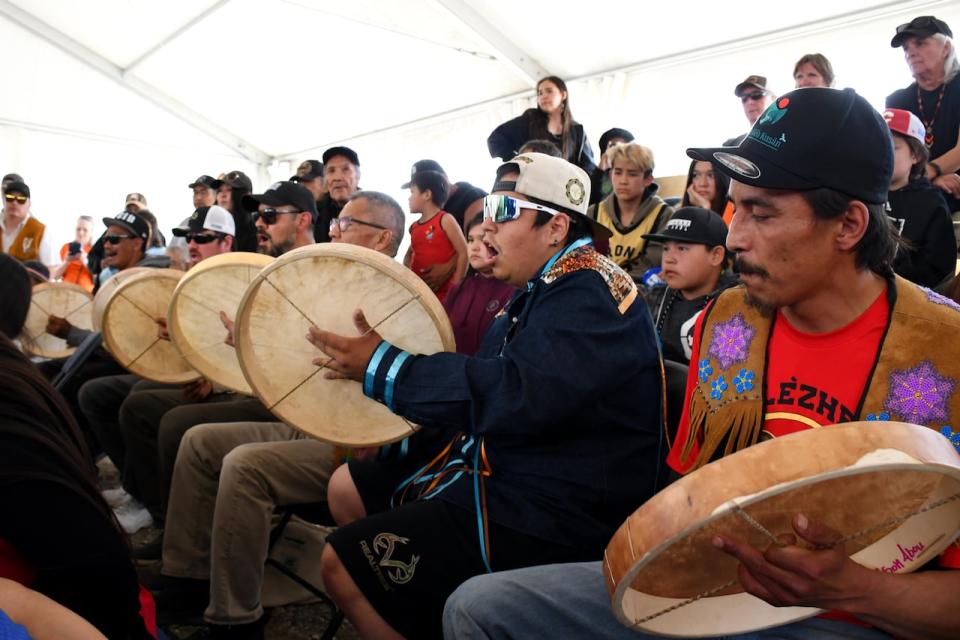

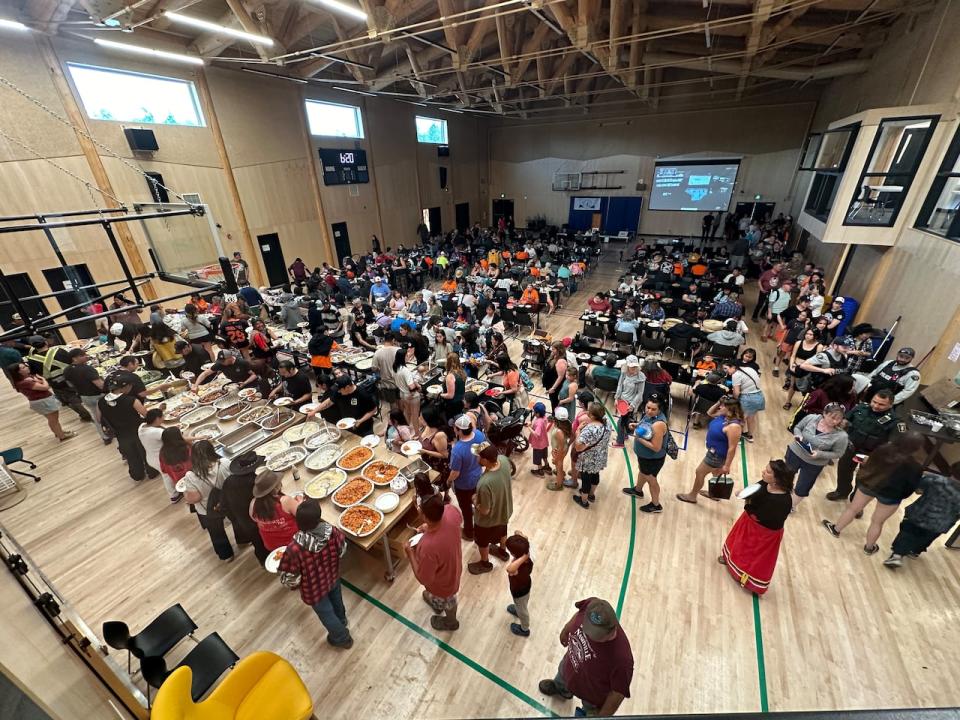

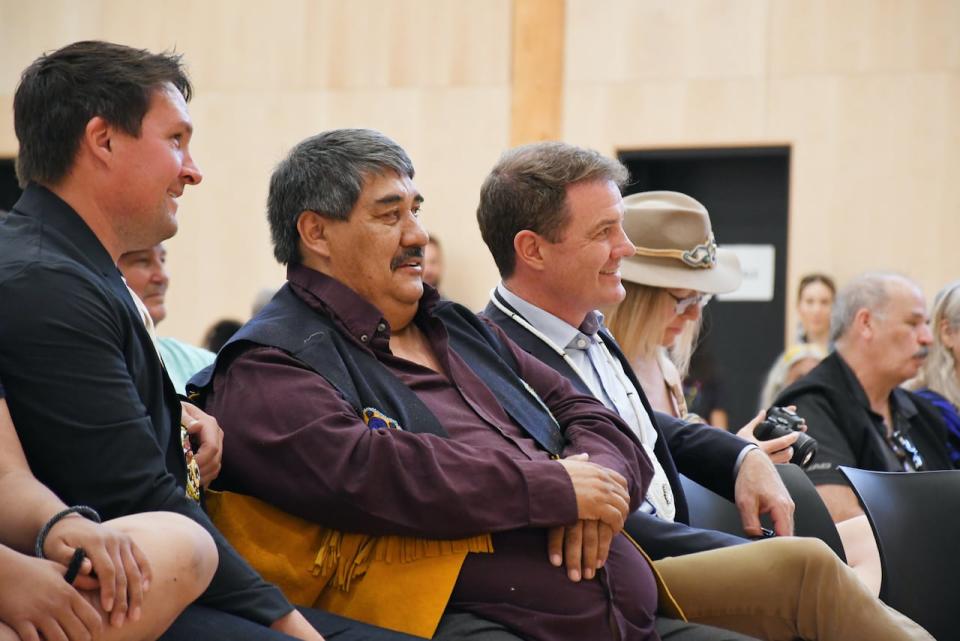


 Yahoo News
Yahoo News 
